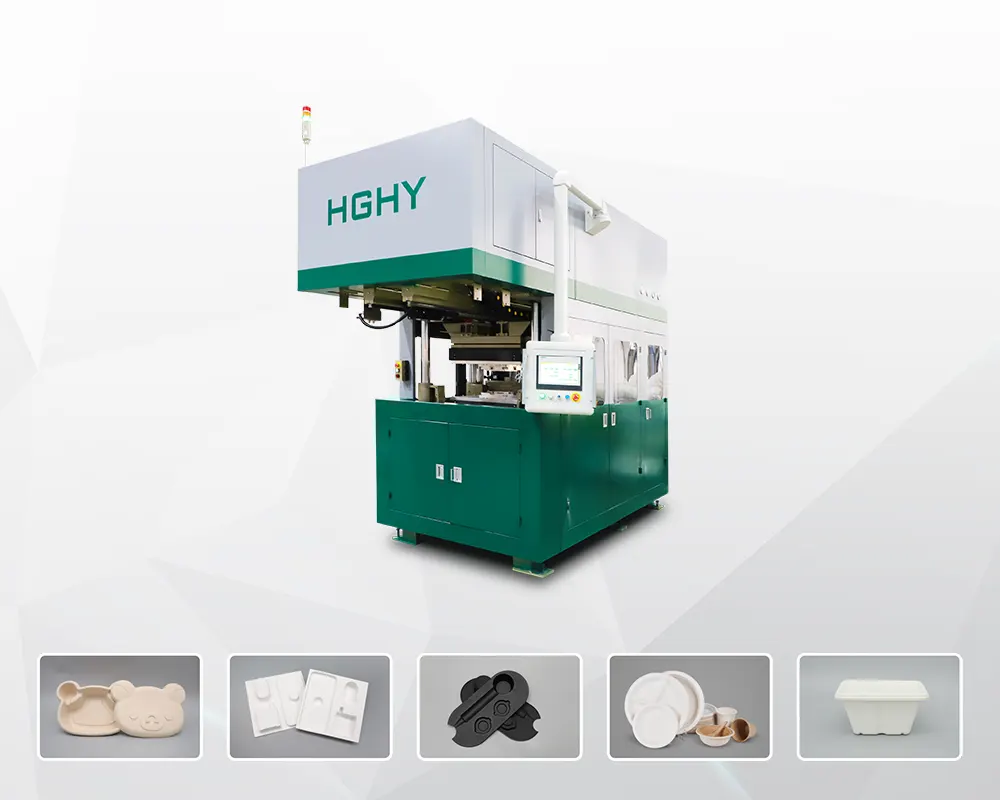As the world moves toward carbon neutrality and plastic alternatives, the molded pulp industry is emerging as one of the most promising areas of cooperation between Europe and North Africa. By combining resources, transferring technology, and leveraging complementary markets, the two regions are building a sustainable, economically viable, and future-oriented industrial chain.

1. Europe’s Market Drivers
The European Union has long implemented strict environmental regulations, gradually banning single-use plastics and promoting biodegradable and recyclable molded pulp packaging.
- Consumer Demand: Retail, takeaway, and food & beverage industries are rapidly increasing their need for eco-friendly tableware and packaging.
- Brand Commitment: Global chains such as McDonald’s, Starbucks, and IKEA are rolling out plastic-free strategies.
- Policy Support: The EU Green Deal and Circular Economy Action Plan provide strong policy and financial backing for molded pulp.
This makes Europe the high-value, high-standard demand center of the industry.

Molded Pulp Insert Machine
The machine converts wood pulp, sugarcane bagasse, and bamboo fiber into high-quality molded pulp inserts. It is mainly used to produce protective inserts for electronics, industrial shockproof trays, and premium cosmetic packaging.
2. North Africa’s Resource and Manufacturing Advantage
North Africa offers abundant agricultural by-products such as sugarcane bagasse, wheat straw, bamboo, and recovered paper—ideal low-cost raw materials for molded pulp.
- Cost Efficiency: Lower labor and raw material costs compared to Europe, suitable for large-scale production.
- Geographical Edge: Close to Europe with short sea freight routes and competitive logistics.
- Policy Incentives: Countries such as Morocco, Egypt, and Tunisia actively promote green industry investment with tax breaks and land incentives.
North Africa is poised to become the manufacturing base serving Europe’s growing demand.
3. Industry Chain Synergy
Collaboration between Europe and North Africa in molded pulp goes beyond product manufacturing—it extends across the entire value chain:
- Raw Material Chain: North Africa supplies low-cost crop fibers and recovered paper, while Europe contributes advanced pulp modification technology.
- Equipment Chain: European precision molds and automated equipment paired with North African large-scale factories ensure productivity and quality.
- Market Chain: Products manufactured in North Africa are exported to Europe quickly and cost-effectively, enhancing competitiveness.
4. Investment & Partnership Opportunities
- Plant Development: Establishing molded pulp factories in North Africa to export to Europe provides significant cost benefits.
- Joint Ventures: European brands can partner with North African enterprises to build localized + export-oriented markets.
- Technology Transfer: European equipment manufacturers and design firms can export expertise and standards, transforming North Africa into a regional production hub.
5. A Blueprint for the Green Economy
As the global green transition accelerates, the Europe–North Africa molded pulp industry chain represents not only business opportunities but also a commitment to environmental responsibility and social value.
- Environmental Impact: Reduces hundreds of thousands of tons of plastic waste annually.
- Economic Benefits: Creates tens of thousands of jobs and drives industrial upgrading in North Africa.
- Global Influence: Establishes Europe and North Africa as key players in sustainable packaging worldwide.
HGHY: A Leading Manufacturer of Pulp Molding Machines
HGHY is a renowned name in the field of pulp molding machinery. With a reputation for innovation and quality, HGHY offers a range of machines suitable for various applications, including egg box production. Their machines are characterized by:
– Advanced Technology: HGHY machines incorporate cutting-edge technology, ensuring efficiency and precision in production.
– Customization Options: HGHY provides tailored solutions to meet specific production requirements, from small-scale operations to large-scale industrial setups.
– Environmentally Friendly: HGHY’s machines are designed with sustainability in mind, utilizing recycled materials and minimizing waste.

The Molded Pulp Insert Machine is more than equipment—it’s a gateway to joining the supply chain of the world’s leading smartphone brands. With a production capacity of 650–800 kg per day, rapid ROI, and compliance with global eco-packaging regulations, it positions manufacturers at the forefront of a booming, future-proof industry.
As Apple, Samsung, and other high-end electronics brands continue to expand sustainable practices, the companies that invest in molded pulp packaging today will secure not only business growth but also a role in shaping the green industrial ecosystem of tomorrow.



